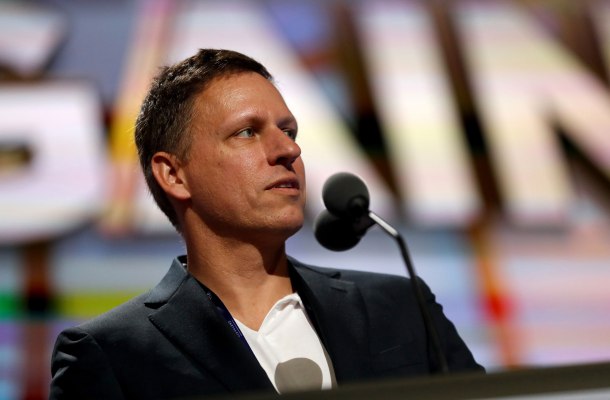A venture fund that backs very early-stage advanced tech and science startups, Breakout Labs, has invested in 4 new deals, according to founder and Managing Partner Lindy Fishburne.
The fund, which is part of the Thiel Foundation, typically invests $350,000 in each startup, with no strings attached. If a startup’s research and development does not lead to commercialization as hoped, Breakout Labs does not seek any money back, and counts the cash it has invested as a grant.
If a company succeeds enough to go on to raise outside venture capital, Breakout Labs’ earlier grant is exchanged for shares at a cost discount.
And if Breakout Labs companies are acquired or go public, generating returns for investors, the fund puts all of its returns into future grants for other advanced tech and science startups. Fishburne calls this approach “first mile,” funding.
Breakout Labs also pays for startup founders it has newly backed to travel to San Francisco for quarterly meetings with one another, and for its annual “Unboxing day,” where founders can show off their research, and network with potential strategic partners and venture investors.
Fishburne said if there’s one unifying theme among the companies it has backed to-date, it’s the idea of “reprogramming” nature. “We can reprogram, build and upcycle what we need from what already exists in nature, rather than passively relying on nature to deliver it to us,” Fishburne said.
Breakout Labs has invested in 30 companies so far in the fields of biotech, data and materials science, and energy. Seven of those companies have gone on to raise Series A and two have closed Series B rounds.
The four new startups that Breakout Labs has invested in are:
- Azitra – The Farmington, Conn.-based startup is developing a “recombinant strain of skin-safe bacterium that secrete therapeutic proteins.” These proteins are missing from the skin’s microbiome when a person suffers from problems like eczema or a staph infection.
- Opus 12 – Based in Berkeley, Calif. captures carbon emissions where this pollution is generated, and turns the CO2 into chemicals like methane, ethylene and ethanol, gases that are used to make plastics, surfactants, detergents and fuels that burn relatively clean, as compared to diesel and gasoline.
- Seatrec – A spinout from NASA’s Jet Propulsion Laboratory at Caltech, this Pasadena, Calif.-based company is creating tech that could replace Lithium batteries in some cases. Specifically, Seatrec makes a battery packed with phase change materials. These expand and contract when temperatures around the battery change by about 10-degrees, creating high pressure which is then stored and used to drive an electric generator. Seatrec systems can power unmanned, underwater vehicles called floats and gliders, used for oceanographic research.
- Zymochem – Another Berkeley, Calif.-startup, Zymochem is developing microbes and processes to turn sugar, and other renewable feedstock, into valuable chemicals without emitting greenhouse gases. The company aims to sustainably produce the chemicals that are required to manufacture apparel, automotive plastics and food packaging, which are made using petroleum today.
Corrections: This post was updated to correct typos, and to reflect the way that Breakout Labs’ grants work versus convertible note deals which are typical for very early stage startups.
